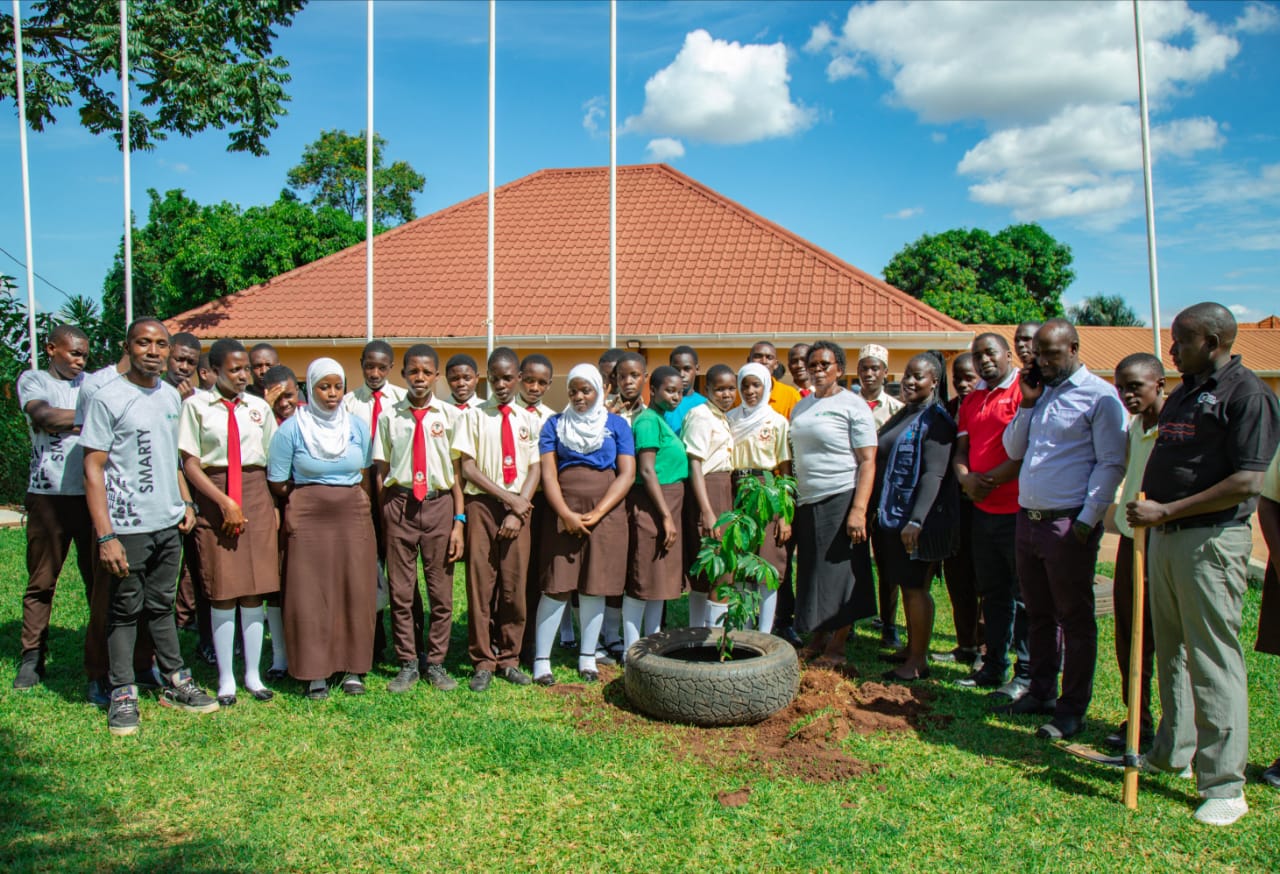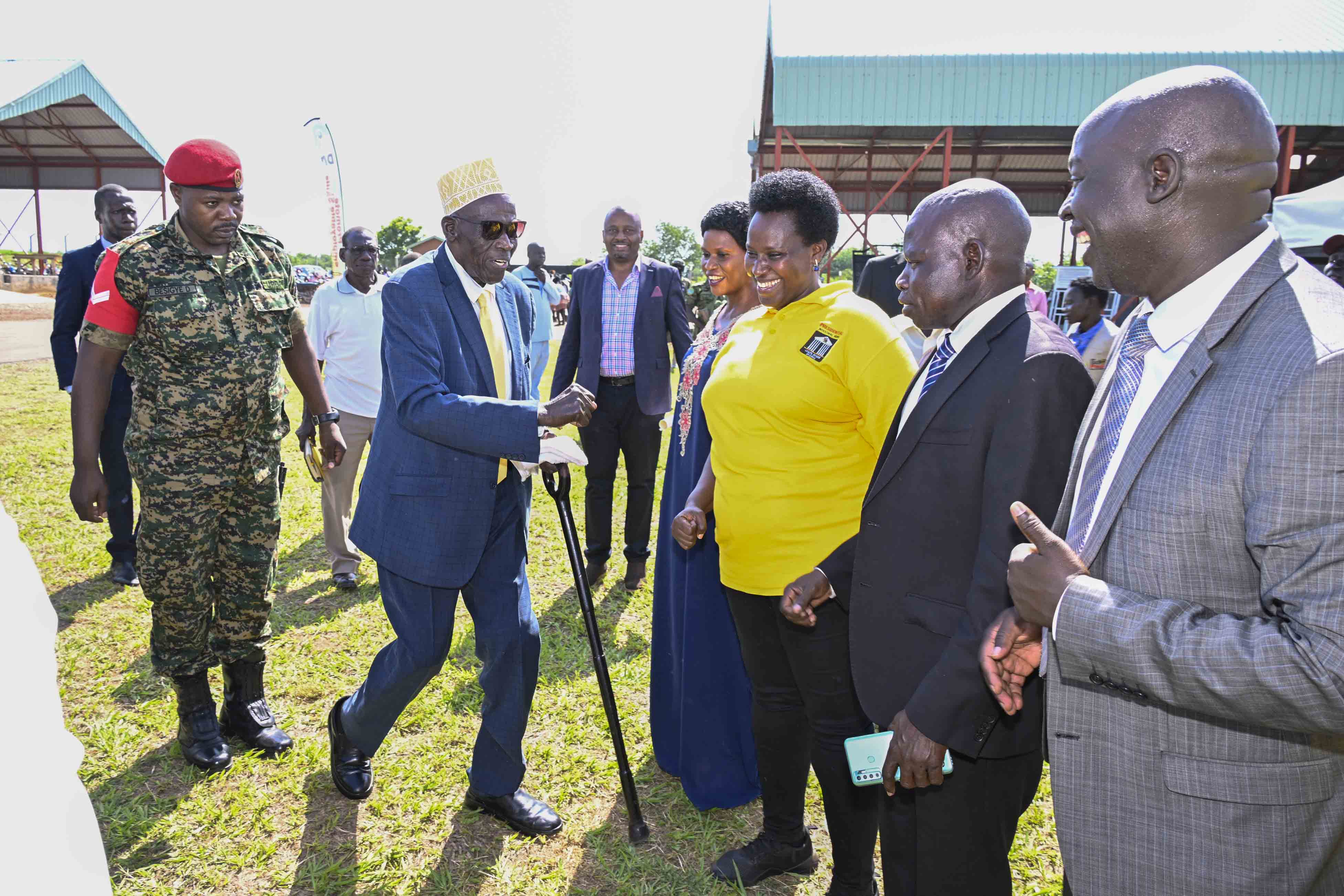Why we must act to protect our Shea trees
By Ojok Okello
While on one of my many errands in village in Okere Mom-Kok, Otuke District in early in November, I found a young man carrying two big Shea logs on his bicycle. I stopped and inquired who the young man was and why he cut the Shea tree.
The young man said he was called Awoi from Ayiloi, one of the villages in Okere Parish.
He said he had cut the Shea tree to burn charcoal and construct a pit latrin. His response was at the very heart of the gigantic challenges of deforestation faced by Shea trees in Otuke district.
Because of their extremely hard wood, Shea logs are mostly preferred by charcoal burners because charcoal from Shea trees are sold are amounts higher that charcoal from other tree species.
Locally, Shea logs are mostly used for constructing the base of pit latrines because they can resist termites’ infiltrations and withstand heavy weight for a long period of time.
As a result, cutting Shea tree continue despite a local governance ordinance by Otuke District Local Government against such a practice.
In 2006, President Museveni issued a directive against cutting down of Shea trees and it was to be implemented by the Residential District Commissioners (RDCs). The presidential directive is coordinated by Robert Abak who is the RDC of Otuke District.
Since 2008, NEMA has also engaged relevant stakeholders at the national, district and local communities level in the Shea belt districts on the protection and sustainable use Shea trees.
The engagement culminated in the development of the National Strategy for the Conservation and Sustainable Use of the Shea Butter Trees in Uganda.
Aware of this legal and policy background, I called the authorities at the local police station to alert them about the situation.
They swung into action and the young man was taken into police custody. Awoi’s father who had instructed him to cut the Shea tree was also summoned to the Police Station.
The Officer-in-Charge of the Station quickly organized a meeting and called upon the Parish Chief, Mr. Odongo JB to Chair the meeting.
“Cutting any tree is tantamount to a crime against humanity because when we do so, we destroy the future of the next generation”, Odongo bitterly lamented.
Asked why he opted for Shea tree, Okello Julio, Awoi’s father said that he thought he already had many Shea trees in his garden so cutting down one tree wouldn’t do as much damage. He also said that whilst he has been an ardent conservationist of Shea trees, he’s fast losing faith in Shea trees to lift himself and his household out of poverty.
“I have kept Shea trees in my garden all my life” he said. “But I am yet to see how it will miraculously get me out of the abject poverty that my family is enmesh in”, Okello said.
I was sent into a deep moment of reflection by Okello’s lament. Whilst it was a reckless statement, there was a critical question to it: how can the emancipatory potential of Shea trees be harnessed? This is a million-dollar question that needs an immediate response.
If the question is not answered, the cutting down of Shea trees as a quick money making alternative is going to continue for the foreseeable future. And the answer of this question is at the very bottom of our work at Okere City, a project I have founded in my village to use Shea trees as an economic empowerment vehicle.
One of the objectives of the Okere City Project is start develop the Shea value chain and place ordinary citizens at all important levels of the value chain.
We have done this by not only running sensitisation campaigns against deforesting Shea trees but also education the rural folks about the benefits of Shea butter beyond what they traditionally know and use for it. We also started an initiative to regenerate Shea trees and encourage the establishment of community shea parklands. Again, we have started Okere Shea Cooperative Society to build a community movement around Shea trees as an engine to be organized and prepared for harnessing the economic value of the natural resource.
Most importantly, we launched Okere Shea Butter to the marketplace and the product’s market value and demand increases by the day. Our conviction is the Shea is Uganda's un-mined Gold.
Shea trees naturally exist in the Shea belt within parts of East and West Africa. Uganda’s Nilotica Shea butter contains important nutrients and properties such as Oleic acid, Vitamin A &E and non-greasy oils which are important in cosmetics, pharmaceutical and confectionary industries.
The global Shea butter market is USD 1.12 billion. In the year 2019, Uganda earned USD 706,000 from exports of Shea butter and there is a potential of this export tripling by 2025.
At the meeting, I used the occasion to sensitise the perpetrators about the benefits of Shea trees and why we should collectively fight Shea deforestation. I also offered to give the young man and his father free Okere Shea Butter.
I am convinced that the best way to fight the cutting down of Shea trees is first and foremost to make the local community understand the value of the natural resource beyond what they know about it simply as moo-yao - a local consumable product.
During the meeting, Okello thanked me for the information he received and he also reiterated his commitment to become an ambassador against the cutting down of Shea trees in Okere village and beyond.
At the end of it all, my heart melted with happiness knowing that a family that was involved in the cutting down of Shea trees will now become a partner in fighting the vice.
Mr. Ojok Okello is a the founder and Chairman of Okere City.













